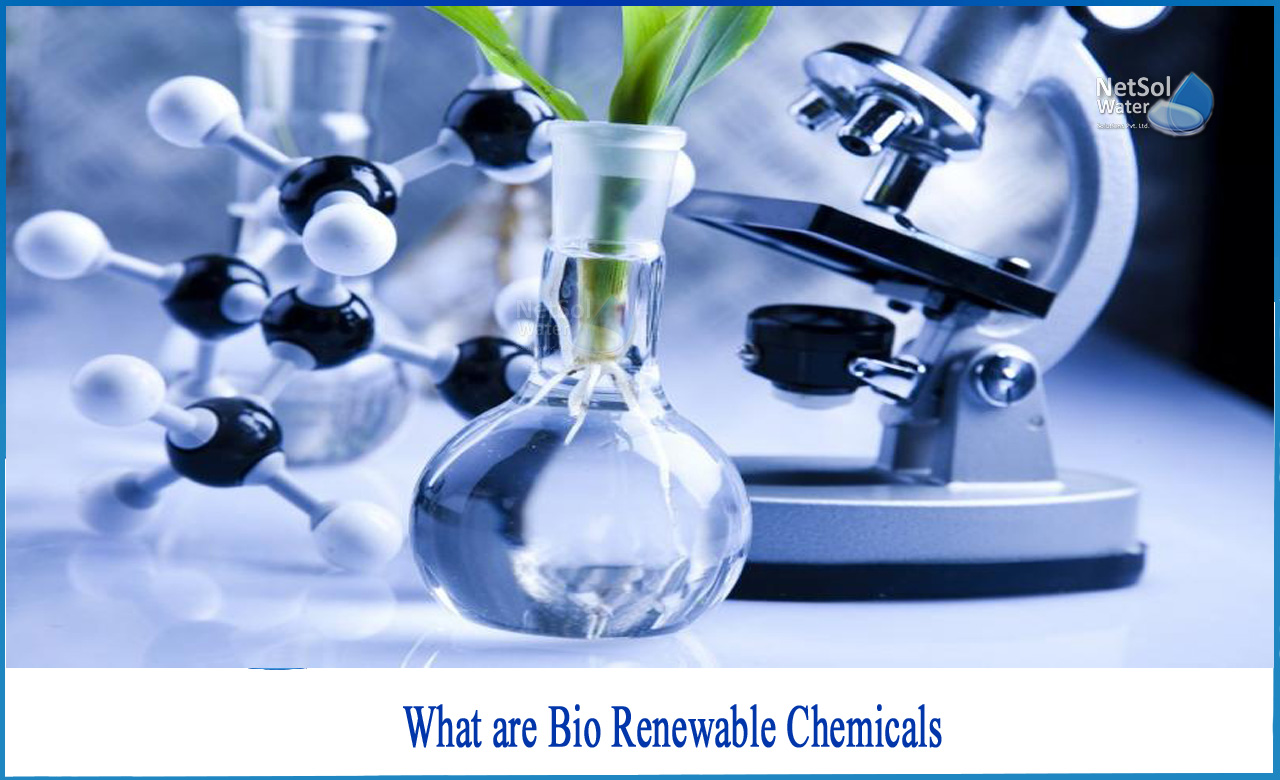What are bio renewable Chemicals?
Biorenewable chemicals are those produced by biological organisms and used as feedstock in the chemical industry. Biorenewable chemicals have the potential to provide solar-powered replacements for the petroleum-based carbon feedstocks that now fuel the chemical industry. The enormous diversity of enzymes in biological organisms, as well as the possibility for synthetic biology to change these enzymes to produce new chemical functions, has the potential to drive the chemical industry. The polyketide biosynthetic pathway, which yields compounds comprising repeating alkyl chain units with the potential for a broad range of functional groups at the various carbon atoms, is a crucial platform for the production of novel molecules.
What are Bioplastics?
Bioplastics are polymers made from renewable biomass, such as vegetable lipids and oils, lignin, maize starch, pea starch, or microbiota. The thermoplastic starch is the most frequent kind of bioplastic. Cellulose bioplastics, biopolyester, polylactic acid, and bio-derived polyethylene are some of the other types.
When compared to plastic manufacture from petroleum (petroplastic), the development and use of bioplastics is typically seen as a more sustainable activity; yet, the manufacturing of bioplastic materials is frequently still dependant on petroleum as an energy and materials source. The entire market size for bioplastics is difficult to define due to market fragmentation and imprecise definitions, although global production capacity is estimated at 327,000 tonnes.Global usage of all flexible packaging, on the other hand, is predicted to be approximately 12.3 million tonnes.
What is Biomass?
Biomass refers to biological material obtained from live or recently living creatures, most commonly plants or plant-derived compounds. Sustainable harvesting and utilization of renewable resources (i.e., a positive renewal rate) can help to minimize air pollution, soil contamination, habitat destruction, and land degradation.
Biomass energy is generated from six different sources of energy: trash, wood, plants, waste, landfill gases, and alcohol fuels. Since the invention of fire, people have exploited biomass-derived energy, and wood remains the most important biomass energy source today.
Furthermore, low-tech biomass use, which still accounts for more than 10% of global energy demands, may cause indoor air pollution in underdeveloped countries, resulting in 1.5 million to 2 million fatalities in 2000.The biomass utilized to generate power differs by area.
What is Bioasphalt?
It is an asphalt substitute manufactured from non-petroleum-based renewable resources. Sugar, molasses, rice, corn and potato starches, and vegetable oil waste are all used in the production of bioasphalt. Binders based on vegetable oil are used to make asphalt.
What is bio fuel?
A biofuel is a form of fuel that derives its energy from biological carbon fixation. Biofuels include biomass-derived fuels, as well as solid biomass, liquid fuels, and other biogases.
- Bioethanol is a kind of alcohol created by fermentation, primarily from carbohydrates found in sugar or starch crops such as maize, sugarcane, or switchgrass.
- Biodiesel is created by combining vegetable oils with animal fats. Transesterification is used to create biodiesel from oils or fats.
- Biogas, which is methane generated by anaerobic digestion of organic material by anaerobes, is also a sustainable energy source.
What is Biogas?
Biogas is a gas mixture created by the decomposition of organic materials in the absence of oxygen. Anaerobic digestion with anaerobic bacteria or fermentation of biodegradable materials such as manure, sewage, municipal trash, green waste, plant material, and crops are used to create biogas. It is predominantly composed of methane (CH4) and carbon dioxide (CO2), with trace quantities of hydrogen sulphide (H2S), moisture, and siloxanes.
What are Natural Fibres?
Natural fibres are a type of hair-like substance that comes in continuous filaments or in discrete elongated pieces, comparable to thread. They have the potential to be employed as a component of composite materials. They can also be matted into sheets and used into items like paper or felt. There are two kinds of fibres:
- Natural fibre made up of animal and plant fibres, and
- Man-made fibre made up of synthetic and regenerated fibres.
All these sources of renewable energy can be used in industries.
Netsol Water is Greater Noida-based leading water & wastewater treatment plant manufacturer. We are industry's most demanding company based on client review and work quality. We are known as best commercial RO plant manufacturers, industrial RO plant manufacturer, sewage treatment plant manufacturer, Water Softener Plant Manufacturers and effluent treatment plant manufacturers. Apart from this 24x7 customer support is our USP. Call on +91-9650608473, or write us at enquiry@netsolwater.com for any support, inquiry or product-purchase related query.



